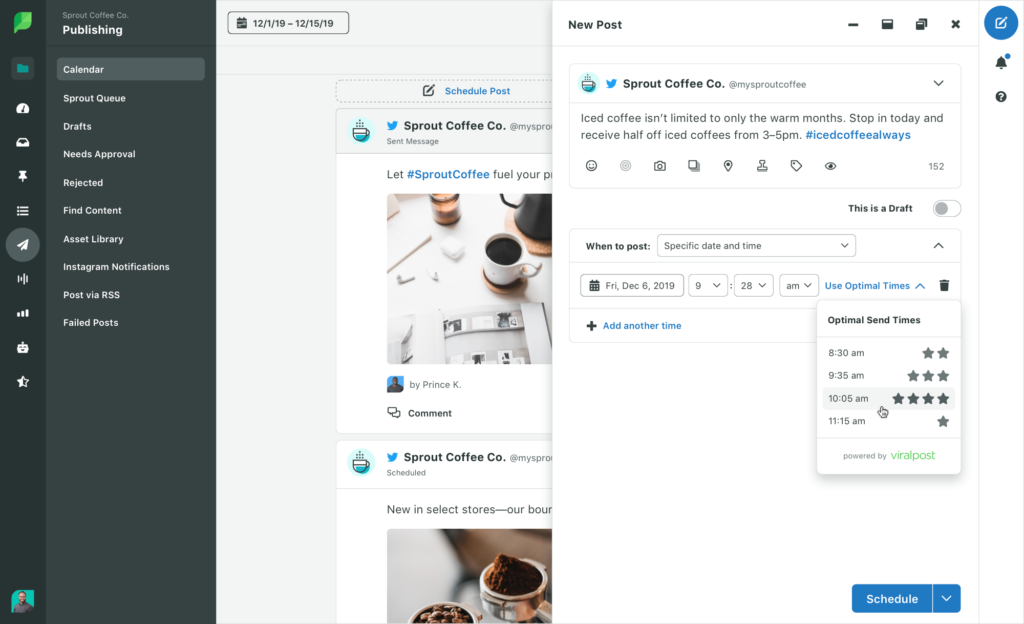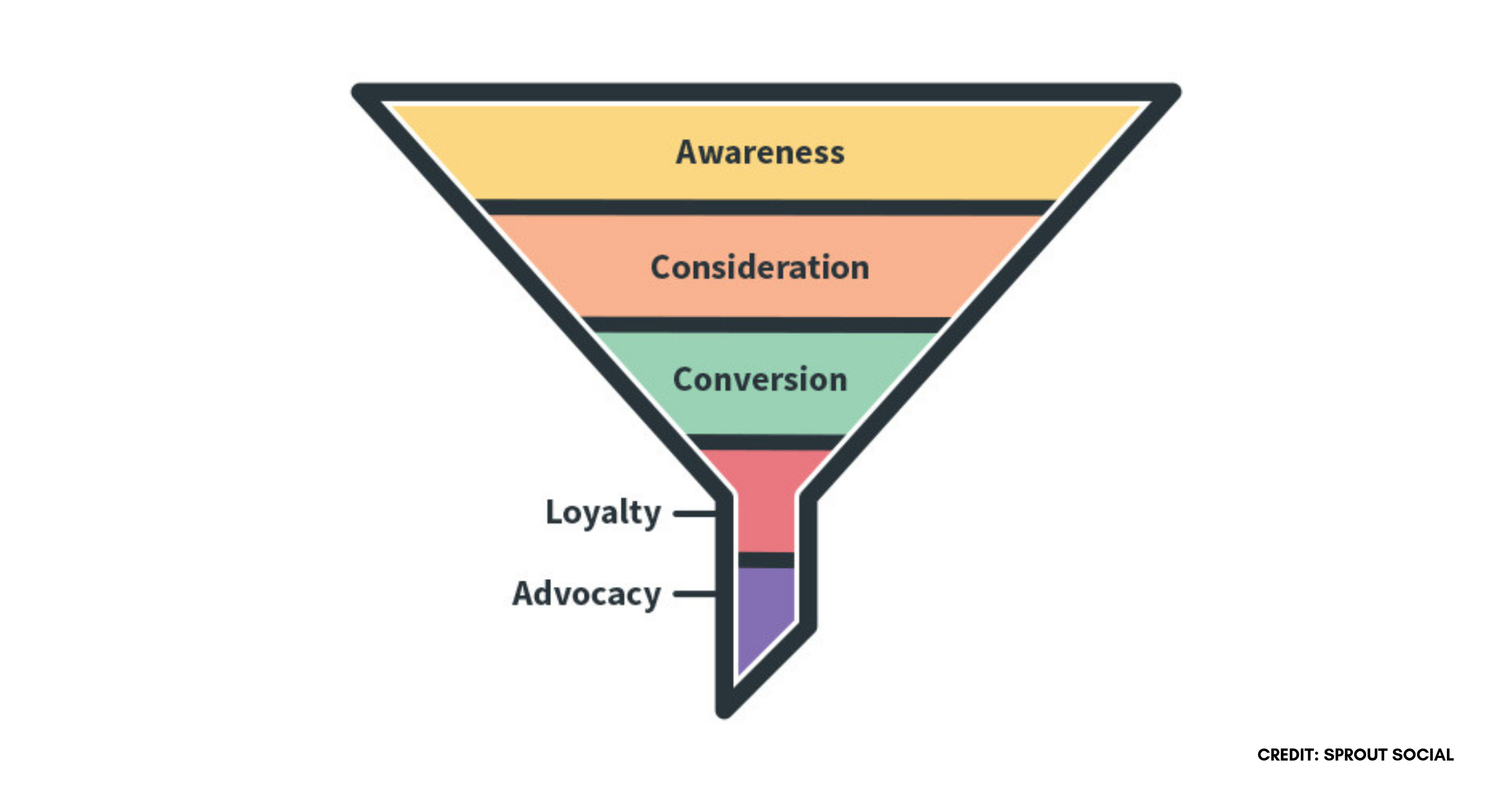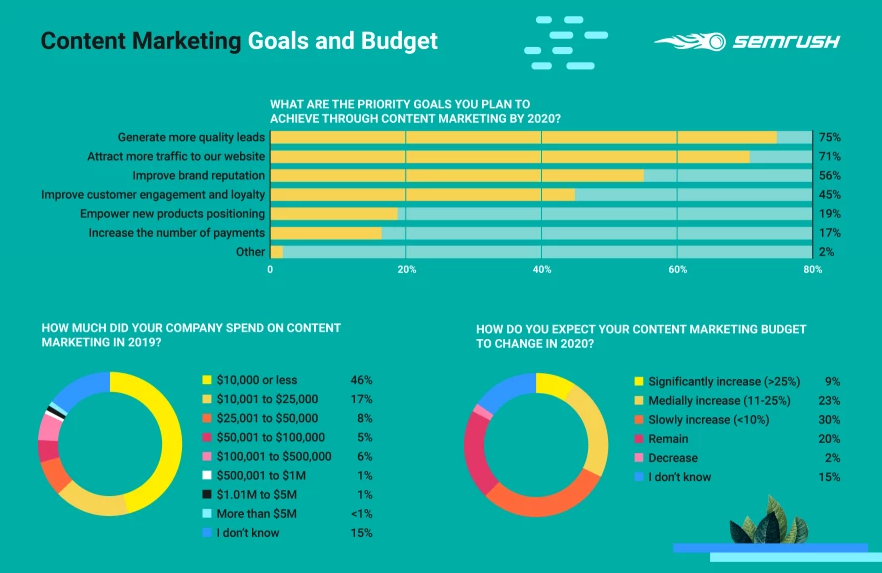Content marketing gets thrown around a lot in the marketing industry as something you need to pay attention to. But what exactly is it and why is it relevant to you, a marketer? How can you harness content to your marketing advantage?
From infographics to blog posts to video tutorials, you’ve most assuredly been at the receiving end of content marketing. On brand teams, it’s sometimes a standalone effort or handled as a segment of an overall marketing strategy. Content marketing looks different for everyone and there are multiple ways to go about it.
When 70% of marketers are actively investing in content marketing, you know it’s something worth diving into, even if you don’t know exactly what it is.
What is content marketing?
Content marketing involves using content to provide value to the receiver in an informative and strategic way. Let’s break down the phrase. Content encompasses everything from ebooks to webinars to blog posts. The marketing portion is how you distribute it, which channels you use and the subsequent metrics that are produced.
Unlike a cold call from a salesperson, content marketing is more like a marathon. In content marketing, you take existing content or create new content and then distribute it in a way that helps the person receiving it.
When you publish a company blog post, the blog post is the content. Deciding when and how to promote it, such as via a newsletter and social media, is the marketing. You might even decide, based on historical data of past published blog posts, to identify the best days and times to share it.
The most important part of content marketing is that you aren’t trying to rein in a customer immediately. You use your content to establish trust and authority so that your customer associates you with the topics covered in your content. For example, for a beauty brand, when a customer is eventually they thinking about which eye makeup palette to purchase, if they’ve been in your content marketing flow, they’ll recall the useful video you published detailing how to do basic eye makeup.
And that’s content marketing in a nutshell.
Who is involved in content marketing & what do they do?
Depending on how your company is structured, content marketing might be its own position or team or it could be a part of the duties of several people. For some companies, content marketing is part of an SEO specialist’s job. For other companies that rely heavily on social media as a distribution channel, it’s usually part of the social media marketing team’s responsibilities.
A content marketer does not ask for random content. Instead, they use historical data and outside sources to determine what kind of content is needed. Through an SEO lens, a content marketer would research keywords, see where the company falls short and then determine what content is needed to fill that gap. Once the content has been produced, they’ll also decide when to publish it and how.
The when is especially significant if you work in an industry that is heavily reliant on seasons. A fashion brand won’t be talking about styling winter clothing in the middle of summer. And a travel agency wouldn’t talk about spring break trips if it’s not planning time.

At the granular level, the when is also important when it comes to distribution. Technology like Sprout’s ViralPost feature helps you easily identify when is the best time for you to post. And the publishing calendar gives you an eagle-eye view on how often you’re distributing the content.
Once the content is produced and distributed, the work doesn’t stop. You want to know how well that content is performing through metrics like site traffic, referrals and social shares. How it performs will inform the content marketer on determining a future content marketing strategy. Maybe after five infographics that didn’t gain traction despite different distribution methods, you realize that infographics are not for your brand. Or that instructional videos receive a lot of interaction when they’re published so you’ll further invest in a video marketing strategy.
Where does content marketing fit into the marketing pipeline?
Content marketing can fit into every part of the marketing funnel. When you approach content marketing as a strategy, you’ll want to note where each type of content fits in.

Content that exists as informative how-to guides and webinars for anyone, not just your customers, falls into the awareness stage. For an auto manufacturer, this content might look like a video explaining why it’s important to change your oil and when to change it. This would apply to everyone who owns a car, regardless of the manufacturer.
In the consideration and action stages, the content might look like comparison charts between you and a competitor. Using the auto manufacturer again as an example, you might list all the features that set you apart from your nearest competitor.
Within the engagement or loyalty stage, content types include instructional videos on how to use your product and guides to make the best use of your purchase. At this stage, an auto manufacturer might conduct interviews with current auto technicians to help customers maintain their cars.
And at the final stage, advocacy, you create interesting and creative content to help keep your customers happy, returning and engaged. For the auto company, it could be hosting a customer loyalty event and converting some of them to brand ambassadors.

Goals of content marketing vary by team but according to one survey, 75% of marketers use it to generate more quality leads, 71% to attract more traffic to the website and 56% to improve brand reputation.
It is important to note that one piece of content might overlap multiple stages. A customer might look at a product how-to video but be in the awareness stage. The existing content, though, still informs them about how your company operates. Knowing that product how-to videos exist and getting a preview of your product in action might weigh in on their decision to purchase further down the funnel.
What does content marketing look like?
Now that you know what content marketing is in theory, what does it look like in practice? Remember, content marketing is a combination of the right content with the right distribution and the right strategy. Let’s take a look at how three brands use content marketing.
Topshop: Blog post
The Topshop blog is filled with posts that range from company news to styling ideas.

Topshop identified the oversized shirt as a trend to jump in on and published a post detailing how to style it. As an awareness stage article, you don’t have to purchase the shirt from the company or have an oversized shirt on hand to get value from the article. Perhaps you were looking to purchase such a shirt or you didn’t know what to do with it. The article gives you the tips and ideas you might need.
5 different ways to style the trending oversized shirt… https://t.co/UvrMhNjXpL pic.twitter.com/nibEMisWz6
— Topshop (@Topshop) June 17, 2020
The post is promoted on their home page, via Twitter and could be promoted through their newsletter.
The Lip Bar: Video tutorials
On the Lip Bar’s website, there is an entire page dedicated to tutorials.

Some of these videos are useful if you have their products while some, like the “How to clean your foundation (brush off)” video in the screenshot above, are applicable to anyone who is looking to learn about that topic.
Video is a big portion of Lip Bar’s strategy. They’re posted in their social media channels, used in IGTV and embedded into their product pages. It’s clear that they’ve taken care to produce a video for each portion of the marketing funnel.
Red Bull: All the things
Where do we start with Red Bull? At its core, Red Bull is a drink. But it’s also become a lifestyle brand, in many ways thanks to its investment in content. It has TV shows, events, a magazine, sponsorships that run a whole gamut of sports and much more.

When you visit Red Bull’s website, you aren’t taken to a product page. In fact, you barely see the drink anywhere. The company has turned content marketing into an art, giving potential and current customers various content to consume.
Taking on one insane freefall after another, Dane Jackson pushes himself to the limit tearing up the stunning Pacific Northwest 😵🙌
Posted by Red Bull Adventure on Thursday, July 18, 2019
There are many components of their content marketing strategy and the distribution is through all of their events, athlete highlights and magazine. If you hadn’t heard of Red Bull before, odds are high that you would have at least come across one of their branded content pieces.
Next steps
Now that you know what content marketing is and why it’s important, the next steps include learning even more about content marketing and how to execute a strategy.
There are whole websites dedicated to content marketing and there’s no way for us to list them all. But to start, check out Content Marketing Institute, Copyblogger, The Content Strategist and our very own Sprout Social Blog.
Is your content not working out for you? Go through a checklist to identify what’s happening. Do you want to use social media as a distribution tool but don’t know where to start? You’ll need a social media toolkit to establish that strategy.
This post What is content marketing & why is it important? originally appeared on Sprout Social.
Source Sprout Social https://ift.tt/3gK3Itu

ليست هناك تعليقات:
إرسال تعليق